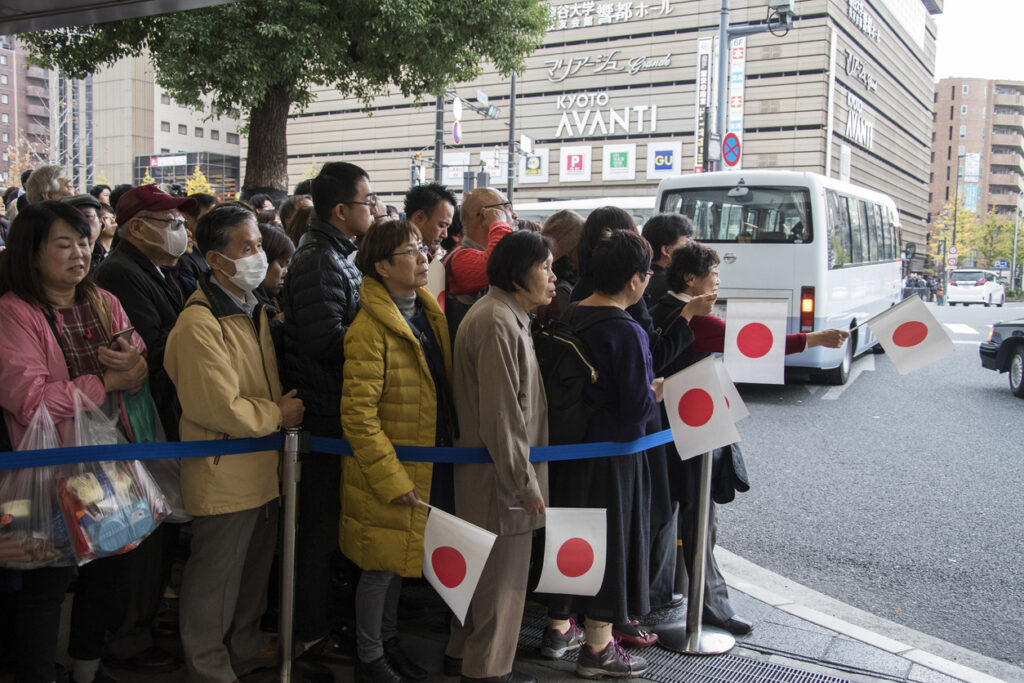4 Japanese Laws That Desperately Need To Be Amended For Women
How Outdated Legislation In Japan Could Be Holding Modern Women Back
While many laws have been created and updated to improve the lives of women in Japan, others have not.
Here, we highlight four Japanese laws we would like to see amended for women so that Japan can become a nation where people of all genders have the same rights on paper and in practice.
Japan often comes under fire on the world stage when discussing women’s rights. Consider these recent reports:
- Japan ranked 118th among 146 countries in the 2024 World Economic Forum Global Gender Gap Report.
- The 2023 Human Rights Watch report on Japan points out the continuing lack of non-discrimination laws regarding sexual orientation and gender identity as well as the limitations of the Equal Employment Opportunity Law.
- Out of OECD countries in 2023, Japan ranks among the worst for the gender wage gap at about 22%.
While there are laws benefiting women in Japan, there are plenty that negatively affect them as well. In the last decade alone, these groups and individuals have stepped into the spotlight to speak out on women’s issues:
- Voice Up Japan: a youth-based organization advocating for gender equality
- #KuToo: inspired by the #MeToo movement, this one started as a protest against unfair professional attire for working women
- Shiori Ito: a journalist who was sexually assaulted by a high-profile offender and brought her case to court
In this article, we examine legislation that could be holding modern Japanese women back to shed further light on gender inequality in Japan.
1. Spouses Must Share The Same Surname
 © Photo by iStock: Vadym Pastukh
© Photo by iStock: Vadym PastukhArticle 750 of the Japanese Civil Code states spouses must share the same surname.
While the law doesn’t specify who in the relationship has to take their partner’s family name, the reality is skewed. In 2022, nearly 95 percent of Japanese wives changed their surnames to match their husbands after marriage.
The Problems
- Using a maiden name for work can lead to unexpected problems while conducting business overseas (such as your official government ID not matching the name used for work).
- Mental health issues can develop, ranging from a sense of losing one’s identity to tensions with spouses over not wanting to change surnames.
- The law disproportionately creates social, economic and administrative burdens for women compared to men.
Challenges To The Law
In March 2024, several common-law and married couples argued that the law contradicts Article 24 of the Japanese Constitution which states husbands and wives share equal rights. These cases may benefit from rising support for change from the public and some corners of the business world. According to one study, over 60% of participants agreed that married couples don’t need to share the same surname.
2. Barriers To Abortions In Japan
 © Photo by iStock: simarik
© Photo by iStock: simarikIn practice, abortion is legal up until 22 weeks of pregnancy and easy access to the morning-after-pill is still in its infancy. But, access to safe abortions in Japan remains complicated.
The Problems
- Article 14 of the Maternal Health Act states that spousal consent is required for abortions.
- While several government bodies have stated that spousal consent is not necessary in cases where the relationship is “broken,” the burden of proof lies with the woman and the final decision with medical professionals.
- Until recently, morning-after-pills were by prescription only and required spousal approval.
- An over-the-counter morning-after-pill available in about two to six pharmacies per prefecture is expensive and must be taken in front of a pharmacist.
Challenges To The Law
In 2023, the Japan Pharmaceutical Association, under the supervision of the Ministry of Health, began making the over-the-counter morning-after pill available across the country. Although there are currently no legal challenges to Article 14 of the Maternal Health Act, several bodies, including the Japan Association of Obstetricians and Gynecologists, have requested the removal of spousal approval from the law.
3. The “Annual Income Barrier”
 © Photo by iStock: MixMedia
© Photo by iStock: MixMediaAccording to Japanese tax law, primary wage earners can receive tax deductions if their dependent spouse earns less than ¥1.03, ¥1.06 and ¥1.3 million in annual income, each representing a different tax bracket. According to one study, nearly 37% of wives reduce their number of working hours to lessen their husband’s tax burden.
The Problems
- The law pressures women to work part-time or irregular jobs to secure tax credits for their spouses and savings for the family as a whole.
- Working in part-time or irregular positions can lead to lost job experiences and opportunities for networking in more stable employment.
- Irregular work can result in resume gaps, which may limit access to jobs with higher salaries and job prospects.
Challenges To The Law
Recently, businesses have lobbied the government to change the annual income barrier due to labor shortages. The current system has discouraged nearly half a million part-timers from working more hours.
Unfortunately, public discourse surrounding this issue tends to be in gender-neutral terms, and most commentators don’t consider the negative consequences of the barrier on married women. Particularly in light of Japan having the widest wage gap among OECD nations, the societal and structural impediments to female spouses’ earning power should be front and center.
4. The Imperial Succession Debate
 © Photo by iStock: tang90246
© Photo by iStock: tang90246The Imperial Household Law of 1947 lays out rules governing the imperial family from succession to official titles. Chapter 1, Succession to the Imperial Throne, uses several instances of gendered language, such as male, son, brother, and uncle, to state that only men can be emperors.
The Problems
- This law limits who can ascend to the imperial throne to men only, barring women from becoming emperor.
- Although the emperor’s position has largely become symbolic since the end of World War II, its exclusion of women reflects the conservative belief that men alone are the bearers of the nation’s highest powers and influence.
- This political stance is made especially clear as public opinion polls have increasingly shown greater support for a female emperor in the future.
Challenges To The Law
The last challenge to the gendered emperor system came in the early 2000s when the Japanese parliament debated making changes to the succession clauses to include women. Official discussions were sidelined after the birth of a male heir, Prince Hisahito, which ended a stretch of 41 years when no males were born into the imperial family.
In 2024, the issue was taken up again by political parties as they wrestled with the longevity of the imperial family under the current rules of succession. However, the question of female emperors has been ignored in favor of other options such as allowing female members of the royal family to retain their status in the event of a marriage with a commoner and opening up the idea of adopting men from former royals. But, with succession as a reflection of Japan’s broader declining population crisis, the time for a change may become more possible in the near future.
Looking Ahead
 © Photo by iStock: itakayuki
© Photo by iStock: itakayukiDespite the uphill battles we’ve highlighted, the legal landscape for people of all genders in Japan is capable of changing. In addition to the ones we’ve already mentioned, here are a few more recent victories:
- Article 772 of the Japanese Civil Code, which stated any child born to a married woman is assumed to be her husband’s, and any baby born within 300 days of a divorce is considered to be the offspring of the former spouse, was repealed in April 2024.
- The age of consent was raised from 13 to 16. Which is on par with many states in the US and several European countries.
- Japan’s Penal Code was amended in 2023 to define and criminalize “forcible sexual intercourse” and extend the statute of limitations for reporting crimes from 10 to 15 years with the possibility of lengthening it further in the future.
- The Civil Code was amended and will take effect in 2026 to allow joint custody of minors in the event of divorce.
As we look ahead to the next round of legal fights on the horizon, let’s draw strength and inspiration from those who have fought for greater gender equality.
This article was originally written by Brooke Larsen in 2019. It has been updated by Elizabeth Sok with the latest information for 2024.
















Japan needs to amend the law preventing Japanese nationals from holding additional nationalities as it violates and allows the government to interfere with current and future personal happiness and also has impacts to immigration growth.